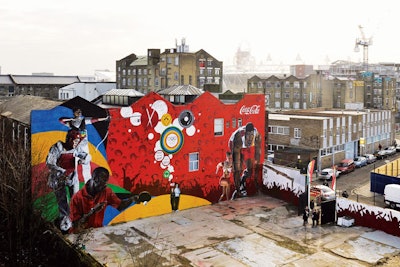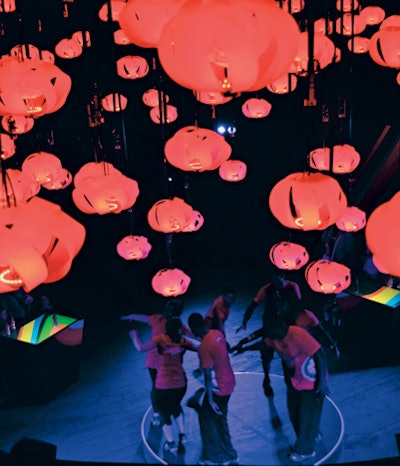The marketers behind the indomitable soft drink, which currently tops Interbrand’s list of Best Global Brands, channel their efforts into activations that receive global attention. Last year’s strongest case in point: Coca-Cola’s sponsorship of the London Olympics. Although the brand has partnered with the games for 84 years, in 2012 it put more muscle and dollars than ever before behind its biggest-yet promotion.
For the first time, the brand’s Olympics-related efforts were targeted at a teen audience. Aiming for a universal marketing message that was fresh, youthful, and easily embraced by its target demo, the brand launched the music-centric “Move to the Beat” campaign in May 2012. Rolled out in more than 100 countries, it centered on a catchy anthem conceived by music producer Mark Ronson and fused the vocals of pop star Katy B with the sounds of athletes’ heartbeats, grunts, and feet hitting the ground.
Additionally, a TV commercial with the song was broadcast globally and a “Move to the Beat” Web site let fans mix a custom version of the song with footage from their favorite sports to create unique music videos. More than three million fans ultimately posted videos on social media sites.
The musical theme and campaign efforts carried over to the Olympic Park grounds in London, where Coca-Cola built an eye-catching pavilion called the Beatbox. Constructed in the brand’s red and white colors but void of logos, the striking, crystal-like structure comprised 200 polymer panels embedded with audio, lighting, and sensor technology. As guests walked up a spiral ramp inside the structure, movements triggered recordings to play remixes of the campaign song. At the center, a light installation mimicked the drink’s fizzy constitution with 180 mechanical and electronic “bubbles” that reacted to the sound of Coca-Cola bottles being clinked at nearby kiosks. Overall, the campaign generated more than 112 million social media impressions worldwide.
Closer to home, Coca-Cola underscored its support for musical artists—and the environment—by partnering with Will.i.am. Called “EkoCycle,” the new stand-alone brand promotes sustainability with a line of lifestyle goods made partially from recycled materials.





















